12 Ways to Ignite Your Confidence

Having self-confidence is beneficial in all areas of our lives, and developing confidence is an important part of personal and professional growth. We intuitively understand that lack of confidence can hold us back from achieving all we want and being who we want to be. The experience of fear, insecurity or nervousness can be debilitating if we don’t understand ways to build confidence. I hear so many people share the desire “I need more confidence” or the lament “I’m not a confident person.”
Let’s talk about this.
A common misunderstanding I see when working with people who want to become more confident is the false belief that having confidence means NOT experiencing nervousness, insecurity or fear. While it’s true that someone with high confidence may experience less nervousness or insecurity, it’s a false belief that to be more confident you must first rid yourself of nervousness, insecurity and fear. Also inaccurate is the idea that confidence is a personality trait that you ei...
Fall Back with a Plan for Winter Wellness
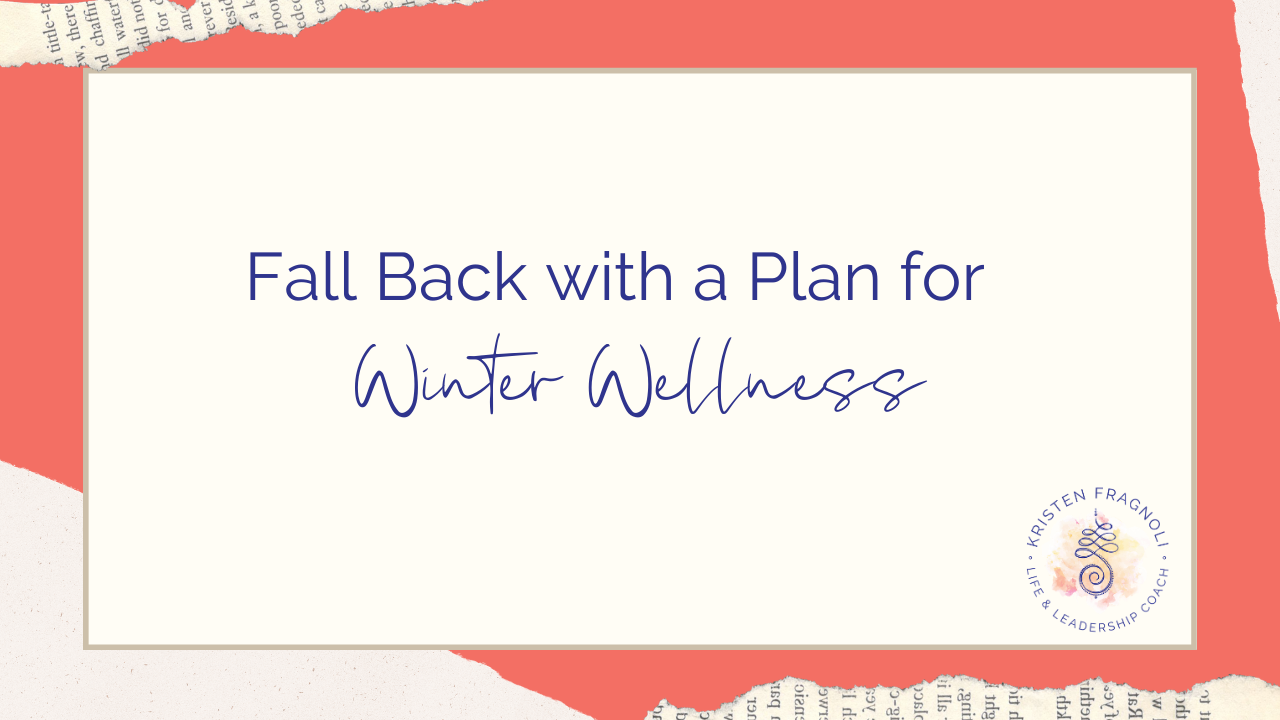
Daylight savings time ends when the clocks "fall back" on November 1 at 2:00am. The shift in time can be very influential on our wellbeing. Winter provides a chance to slow down, rest and restore when we hunker down for that long winter's nap.
However, eight months into a pandemic, this year is different, so it's time to make a plan for your winter wellness.
"Winter is coming" isn't just a Game of Throne catch phrase. It's a call to prepare ourselves for what's ahead; a reminder to intentionally plan behaviors and practices to build resilience during the dark days of working and schooling from home.
The good news is, when we know a storm is coming, we can prepare for it! Here in the Northeast, we’re familiar with last minute runs for bread, milk and needed supplies before a storm keeps us home for a few days. Similarly, now is the time to make a resilience plan in anticipation of our first pandemic winter.
It’s time to stock your mental, emotional and physical pantry.

Get yourse...
Amidst Uncertainty, Find Your Purpose “For Now”
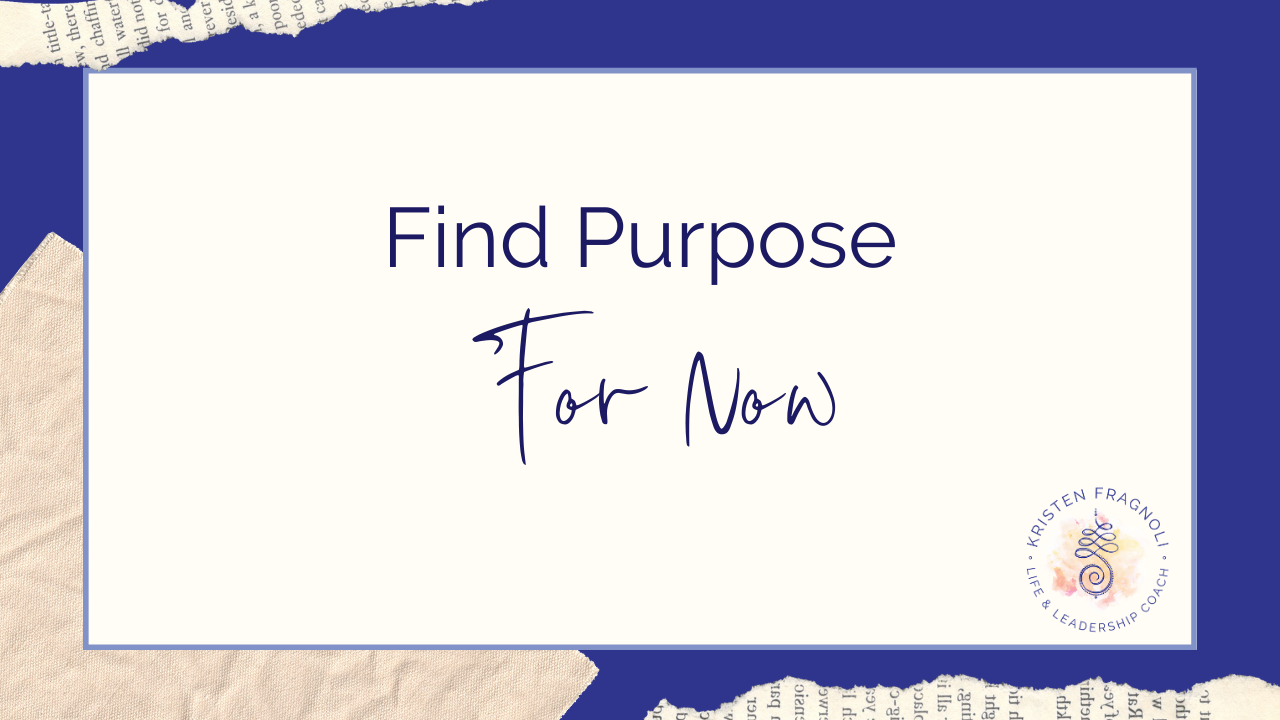
As a coach, I encounter many people, young and old, from many walks of life, who want to talk about finding their Purpose (capital P). That natural inclination is in the spotlight as we navigate the innumerable changes during this time of Covid. Many of us are re-thinking the state our lives and considering what shape we want them to take as we look to create a new way of living on the other side of this.
We are yearning to exert some influence over what is to come. It’s a natural reaction to want to gain some sense of control in an otherwise out-of-control world. We want influence on what our so-called “new normal” will look like.
Of course, this search for purpose and meaning isn’t a new pursuit that has popped up since the pandemic began; even in the earliest civilizations humans spent considerable energy focused on finding the “meaning of life” and trying to answer the big (yet very personal) questions “why am I here?” and “what is my purpose?” Noble questions to be sure – wort...
Daily Courage Can Move Mountains
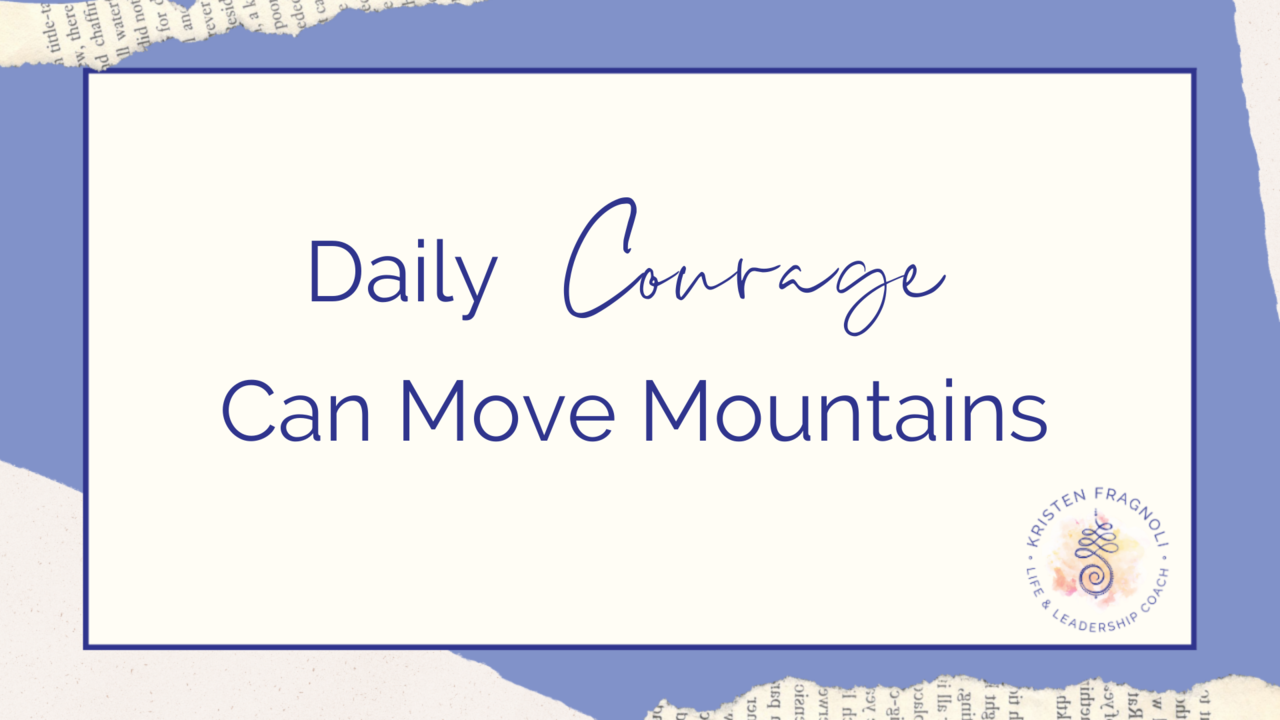
Courage is a much-admired trait espoused for success in life and as a leader. We hear news of the incredible courage of essential workers caring for the sick, sexual assault survivors stepping up to tell their stories, humanitarians facing danger to selflessly act on behalf of others, and mythic stories of heroes and heroines conquering all manner of challenges. These all serve as inspiration and aspiration to develop our own courage, yet most of us need courage not for momentous, mythic undertakings, but for simple acts in our daily lives. We need courage to take or leave a job, courage to express our true feelings in a new (or old) relationship, courage to stand up for ourselves or others or even just to start over after a difficult, disappointing day. Right now, it seems we all need courage to stay optimistic about the future as we navigate a very challenging world.
Daily we face challenges, changes or difficult tasks that may make us feel fearful, unsure or hesitant to move forwar...
Resilience: Don’t Wait to Bounce Back
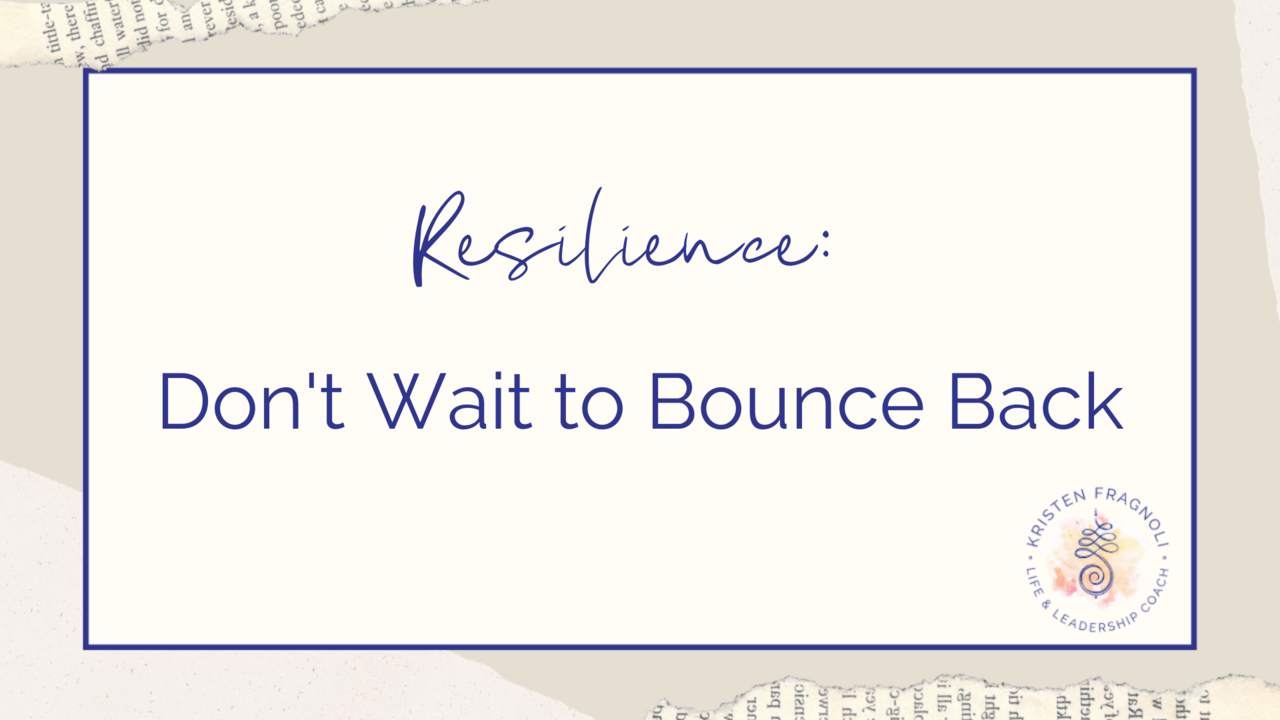
With all the collective struggles we are facing - pandemic, economic and political upheaval, remote work, unemployment - there is more need than ever to be able to respond with resilience.
But, most of us want not only to survive - we want to thrive. There is a shared understanding that resilience is having the strength to endure challenges and overcome adversity, and I think you’ll agree that resilience is a positive trait to possess. When I ask workshop participants to tell me what resilience is, the most common answer is “resilience is the ability to bounce back after difficulty.”
I have heard this in 100% of the resilience workshops I have facilitated.
It’s not wrong, but...it’s not enough.
While “bouncing back” after failure, disappointment or difficulty is certainly good, it already implies a “reactive” tone - it asserts that we bounce back after something happens. And while that may be when resilience shows itself, we don't want to wait until adversity hits to start thinki...
6 Reasons Resilience is Critical for Leadership
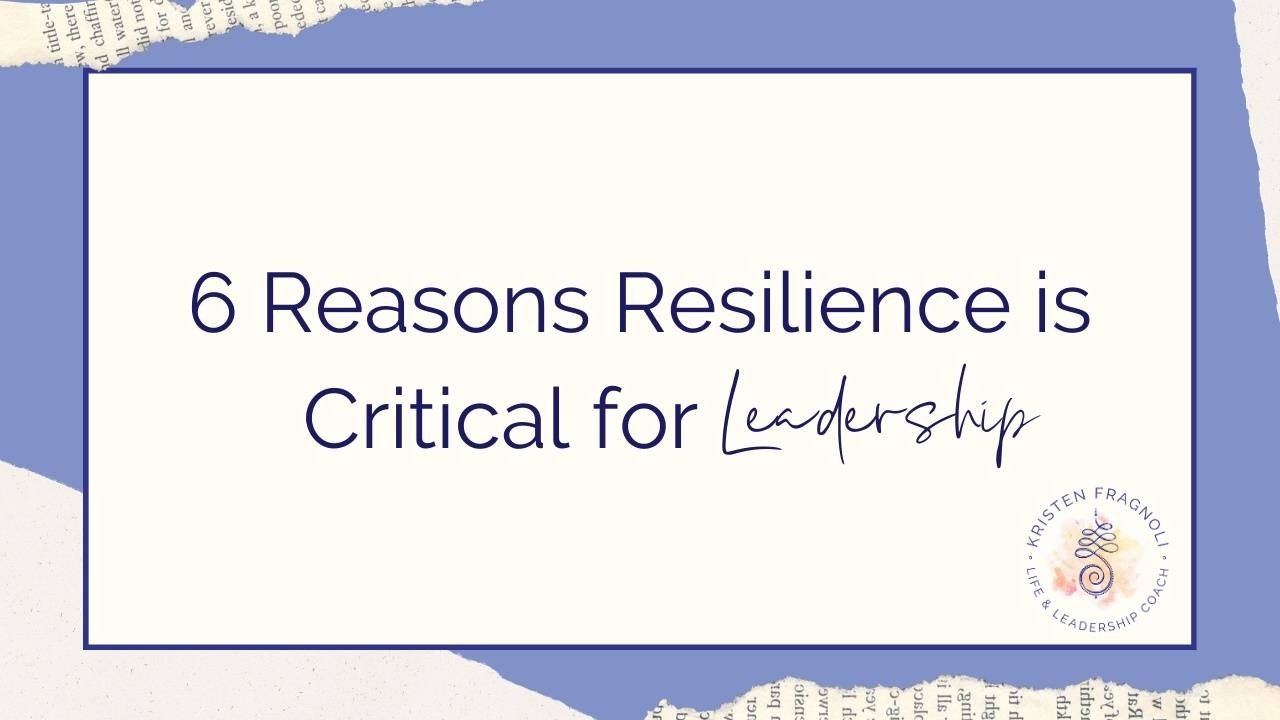
Leaders face many challenges supporting, guiding, and inspiring teams.
They are called on to build a broad and versatile set of skills to create change, motivate action, and mediate conflict - among many other expectations. Extraordinary leadership requires adaptability and responsiveness to a host of ongoing demands; now more than ever leaders must understand how to develop individual and team resilience if they want long-term success.
Resilience is not only the ability to bounce back after difficulty and endure through tough times, but it is also the ability to face a multitude of experiences with optimism, authenticity, and genuine care for others. True resilience helps you grow; it helps you Bounce Forward.
Resilient people are skilled in self-care, open to growth and transformation, and are grounded in the knowledge of their strengths and deepest personal values.


